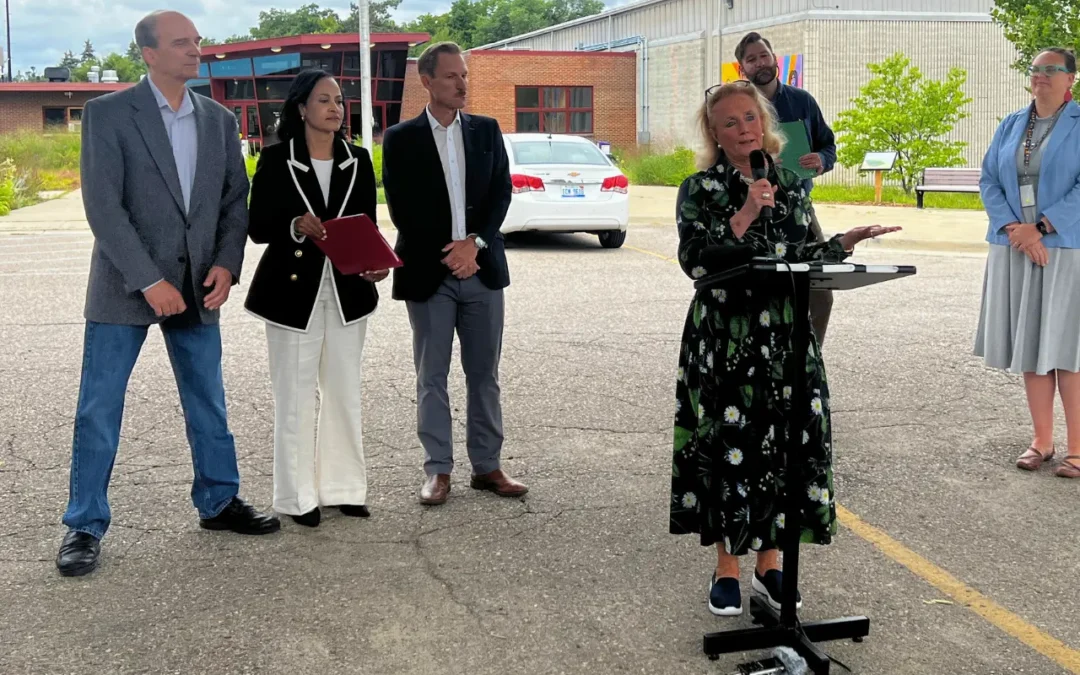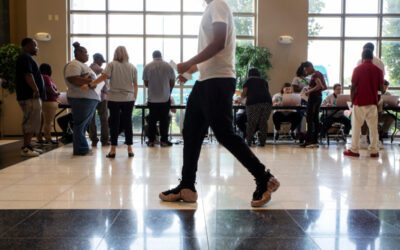
PEXELS Photo
The representative who voted to take away food benefits from around 23,000 people in his district plans to run for reelection next year.
President Donald Trump signed his “One Big Beautiful Bill Act” into law on the Fourth of July, immediately setting the table for future struggles and misery for well over 100,000 Michiganders.
The so-called “big beautiful bill” was a “reconciliation bill”—in other words, a fast-tracked budget law. The one Trump passed has also been called the “billionaire bill,” because it cuts taxes for billionaires and the wealthiest people in the US—but Republicans needed to find money elsewhere to offset those tax cuts. They found it in social programs that many qualified Michiganders have signed up for and relied on to put food on the table.
Take, for example, the Supplemental Nutrition Assistance Program. SNAP is a federal government program run by the US Department of Agriculture, providing food-purchasing assistance for low-income individuals and families to help them get enough nutrition. It’s been running in the US under different names since 1939. Nearly 1.5 million Michiganders receive SNAP benefits.
How many people will lose SNAP benefits in the Lansing area?
The federal government hasn’t released a district-by-district estimate of exactly how many people will lose SNAP benefits due to cuts from Trump’s billionaire bill, but the Center for Budget and Policy Priorities created an estimate using SNAP data from 2022.
In Michigan’s 7th Congressional District, roughly 23,000 people will lose either all or a portion of their SNAP benefits. The district has Lansing at its center, and includes all of Clinton, Shiawassee, Ingham, and Livingston counties. It also includes parts of Eaton, Genesee, and Oakland counties, and the cities of South Lyon, Bellevue, Howell, and St. Johns.
Why break it down by congressional districts? Because each one has a representative in Congress who had to vote yes or no on whether to pass Trump’s “One Big Beautiful Bill Act.”
Rep. Tom Barrett, a Republican, represents the 7th Congressional District. He voted YES on Trump’s tax bill—to take food benefits away from 23,000 people in his district to pay for billionaire tax cuts. His vote will also result in 14,000 Medicaid enrollees in his district losing coverage, resulting in 44 extra deaths per year, according to the Center for American Progress.
Of the district’s SNAP recipients, around 19,000 people aged 18 to 64 with children in school will lose food assistance. Others include the elderly and veterans in the area.
The Urban Institute has estimated that losing SNAP benefits will cost households in the 7th Congressional District around $159 per month. That’s a tough pill to swallow for many families—especially when combined with other financial impacts of the tax bill, such as yearly Medicaid cuts of around $729 per resident, and higher utility bills to the tune of an additional $110 a year in 2026, and $320 a year within 10 years.
Michigan currently absorbs half of SNAP’s administrative costs, and the federal government picks up the other half. The state will now need to absorb 75% of the administrative costs starting in fiscal year 2027.
Because of this, the Michigan Budget Office projected that the state budget will see a gap of around $900 million per year for SNAP by 2029.
What else to know about the 7th Congressional District
Controversies have surrounded Rep. Barrett leading up to and after his election. In 2024, his campaign drew accusations of attempting to suppress Black voter turnout for taking out an ad in a Black-owned newspaper listing an incorrect election date. In 2023, he reportedly violated federal law by not filing financial disclosures for nearly three months.
As the district’s representative in Congress, Barrett voted to raise Michigan’s gas tax and to end the state’s earned income tax credit, and voted against bipartisan job-creation incentives.
Barrett was also involved in election denialism following the 2020 presidential election, challenging the results, spreading misinformation about the election process, and even signing a letter asking Congress to delay certification. Four years later, Barrett ran for Congress, prompting traditional Republicans like Liz Cheney to endorse his Democratic opponent. However, constituents in the 7th District elected Barrett in November 2024.
They’ll have another chance at it next year, after the impacts of the “One Big Beautiful Bill” have started to hit their community. Barrett’s campaign filings indicate that he’s running for reelection in 2026.

Trump’s tariffs cost Michigan another 300 manufacturing jobs—and a $50M factory deal
Michigan workers were promised more jobs under President Donald Trump’s tariffs. Instead, they’ve been losing them. MICHIGAN—A plan to bring 325 new...

Nessel seeks to slash DTE half-billion-dollar rate hike request by 75%
BY BEN SOLIS, MICHIGAN ADVANCE MICHIGAN—Attorney General Dana Nessel filed testimony on Friday in DTE Energy’s latest rake hike request, which is...

Michigan leaders say Trump’s hatred of clean energy will hike utility bills, kill jobs
Clean energy advocates say President Donald Trump’s “One Big Beautiful Bill Act” is raising utility costs, canceling solar projects, and putting...

Here’s how many Michiganders in Flint and the Tri-Cities will lose SNAP benefits in 2025—and the elected politician who tried to stop it
Trump’s tax bill will take around 46,000 people off SNAP in Michigan’s 8th Congressional District. Rep. Kristen McDonald Rivet voted against it....

Here’s how many people in Southwest Michigan will lose SNAP benefits in 2025—and the elected politician who made it happen
About 25,000 people in the Holland-Kalamazoo region are waiting to hear if Rep. Bill Huizenga will run for reelection in 2026, after he voted to...





